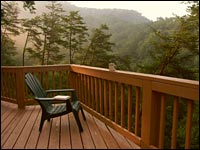Dear Umbra,
It’s spring, my house turns 100 years old this year, and I would like to celebrate by adding a deck. But what type of building materials should I choose? Wood, plastic, or composite? In my market there is no ready supply of FSC-certified wood — I would have to have it milled and shipped in from across the state. Besides, is that really better when you have to treat it every year? What about the new types of pressure-treated wood that are often used for the support structure? So many questions. (And forget patios — my heart is set on a deck.)
Allison
Spokane, Wash.
Dearest Allison,
I want a patio.
I assume wood is your aesthetic preference. Have you called your local big-box store to check on their stock of Forest Stewardship Council-certified lumber? Home Depot and Lowe’s both carry FSC-certified products. Mayhap this is the cross-state shipping to which you refer. If so, I’m sure they ship most of their regular wood to Spokane from other places too, so asking them to place a special bundle on one truck may not make such a difference.

Yes, a deck wood be nice.
Photo: iStockphoto.
If a special call to those stores leads to dead ends, the next step is to look about town for reclaimed, salvaged, or locally milled lumber. (You might start with a local supplier like Lumber Products Spokane. Remember, I don’t endorse, I merely point.) If that effort also fails, I would go look at the available composite and plastic products and write down the aesthetically possible choices. Then, final step, ask an experienced builder about the longevity of these choices in your clime.
I can’t see that the showdown between FSC-certified wood, composite decking, and plastic lumber results in a clear winner on the environmental front. I’d rank plastic lower than wood, but only if the wood is certified. Obviously choosing composite or plastic lumber means choosing recycled plastic content over virgin plastic, just as reclaimed wood is a better choice than virgin wood.
To answer the rest of your question, CA-B pressure-treated lumber, imbued with copper and the fungicide azole, now stands in for the old arsenic pressure-treated lumber (CCA). It is an improvement, being less poisonous and apparently just as rot-resistant. Shop for it with confidence.
Treating a deck is not by definition toxic. Oil- or water-based finishes that are less toxic are becoming more widely available, and are certainly easier to ship across state than lumber. I won’t pretend to know which is best, but I did write about one years back. Additionally, some varieties of FSC-certified wood are tropical hardwoods that don’t need coating — but let’s not get into that here, since they may not be available to you.
To sum up, my attitude seems to be: don’t worry about it too much. It must be spring.
Sunnily,
Umbra

